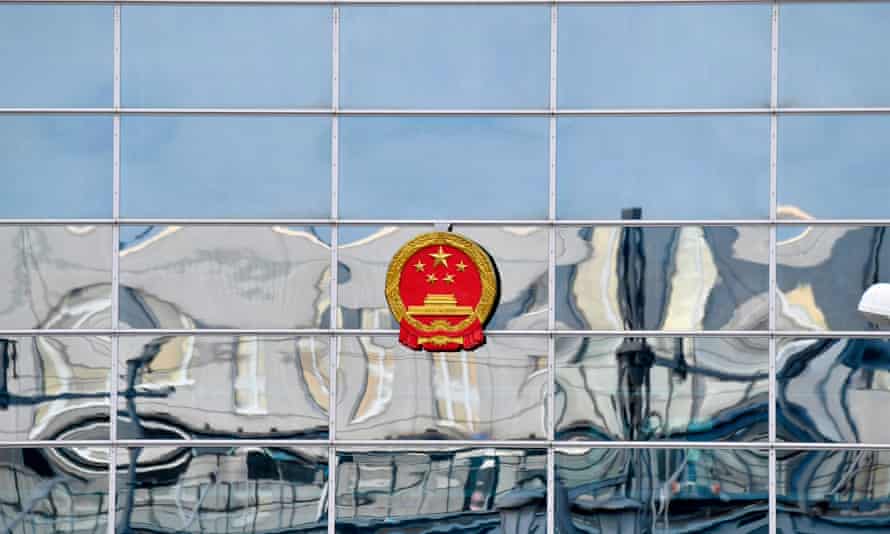China orders companies to step up monitoring of foreigners in anti-spying push
State security will provide ‘guidance’ to organisations deemed to have anti-espionage responsibility as hostilities with western governments deepen

Last modified on Wed 28 Apr 2021 06.59 BST
Chinese social groups, enterprises and public entities will have increased responsibility to combat foreign espionage under new regulations issued by the country’s ministry of state security.
The regulations, which were released and took effect on Monday, come amid deepening hostilities between China and some western governments, including over the detention of foreigners accused of national security crimes.
According to state media, state security will work with other government departments to “adjust” the list of groups susceptible to foreign espionage and to develop measures to safeguard against it, including Chinese Communist Party and state organs, social groups, enterprises and public institutions.

Once organisations are designated as having anti-espionage responsibility, state security will provide “guidance, supervision and inspection” of their efforts, including personnel vetting, and strict training, monitoring and debriefing for staff trips overseas. Identified organisations must report suspicions and incidents to authorities.
It come amid increasing public campaigns to watch out for foreign spies, which state media has warned could be an “intimate lover” or “an online friend with the same interests”.
The new regulation “places emphasis on companies and institutions taking precautionary measures against foreign espionage,” Li Wei, an expert on national security and anti-terrorism at the China Institute of Contemporary International Relations, told state media outlet, the Global Times on Monday.
Li said key fields would include companies or institutions working in national defence, diplomacy, economy, finance and tech.
“Cases of Chinese people working in various industries who were wooed by money or intimidated to engage in espionage activities and became pawns of foreign spy intelligence agencies are numerous.”
Xinhua cited an unnamed security official saying the new national regulations were in response to “intensified infiltration into China” by overseas spy agencies and “hostile forces”.
Chinese authorities have arrested a number of foreigners on national security or espionage charges in recent years, prompting condemnation from their governments and accusations the detentions were instead instances of “hostage diplomacy”.
Two Canadian nationals, Michael Kovrig and Michael Spavor, have been held since 2018 and went on trial last month. Their cases are believed to be retaliation for Canada’s arrest of Huawei executive Meng Wanzhou under a US extradition warrant.
Australian nationals Yang Hengjun and Cheng Lei are also currently detained. Yang, a writer and blogger, was charged with endangering national security by joining or accepting a mission from an unidentified espionage organisation, but has maintained he is innocent throughout more than 300 interrogations.
Lei, a news anchor for state broadcaster CGTN, has been detained for eight months, “on suspicion of illegally providing state secrets to foreign forces”. Australia was “not privy to evidence” supporting the charge, foreign affairs minister Marise Payne said in February.
No comments:
Post a Comment